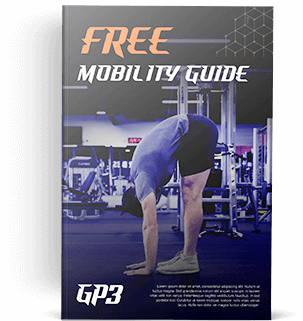Key Points:
1. Thoughts are like reflexes, mostly automatic.
2. You can choose whether or not to believe them and act upon them.
3. Life is happier and simpler when you know this.
Estimated Reading Time: 5-10 minutes
When I say, “You are not your thoughts,” what I mean is that any thought you have doesn’t actually say anything about you. This simple truth is something I wish we were taught in school from a very young age, because not knowing this is the cause of a great deal of needless suffering. Let me elaborate.
Neuroscience research has recently suggested something spiritual practitioners the world over have known for millennia.
Thoughts are essentially reflexes
Remember when you were a kid and the doctor would tap on your knee during a checkup, and your leg would kick out on its own? We don’t have much more control over our thoughts than that. They often pop into our heads, automatically, based on the particular set of circumstances and stimuli that happen to be present at the time. I encourage you to check out this video from Dr. Joe Dispenza for quite a bit more detail about this concept, in case you don’t want to simply take my word for it.
Regardless, the implications of knowing that we are not our thoughts are actually quite liberating. I’m sure you can probably relate to having had a dark or disturbing thought pop into your head, only to be followed by one like, “Wait, what? Where the heck did that come from? I don’t believe that and I would never do that.” Or, this dark thought may then have led to another thought along the lines of, “What’s wrong with me that such a thing would come into my head?”
The short answer is, nothing. As a quick aside, regardless of what certain religious institutions will tell you, having “bad” thoughts in no way makes you a “bad” person. Thoughts don’t reveal anything about your character, your qualities, or your worth as a human being. So, you definitely should not blame yourself or feel bad for having a particular thought. Good to know, right?
The Freedom of Knowing We Don’t Control Thought
As I mentioned earlier, thoughts are unpredictable, complex, and we certainly don’t completely control them. To clarify, of course we can exert a degree of control by focusing on whatever we want when we’re engaged in deliberate thinking. However, it’s highly difficult to determine what causes a particular thought to arise when we’re working, daydreaming, or engaged in any activity that isn’t focused thinking. Here’s the truth. Any thought could have come up due to any combination of any experience you’ve ever had, at any point in your life. When described this way, it’s easy to see that there are infinite combinations from which thoughts could arise. Knowing this, one can see how it is relatively pointless, even detrimental, to spend too much time worrying about where any single thought came from.
However, this is where we must make an important distinction.
We Can Control Our Responses To Thought
We can actively choose to believe, identify with, or act upon the thoughts that enter our field of consciousness. However, because we’re never taught this, too many people automatically internalize all or most of the thoughts they experience. For example, let’s say the thought, “My partner doesn’t appreciate me,” arises. The conventional line of…thinking (see what I did there?) would have us believe that if such a thought appears, it must be true. They must not actually appreciate you, otherwise you wouldn’t think that, right? Well, that’s probably not true. To paraphrase one of my favorite parts from the aforementioned Dr. Dispenza video, “We have over 60,000 thoughts each day…and a lot of them are wrong.”
Let’s look at the above scenario to see how powerful this simple truth can be for our lives. Left unexamined, a thought like, “My partner doesn’t appreciate me,” could ultimately lead to the breakdown of a perfectly good relationship. However, instead of being doomed to the end of a relationship because we started having that thought, we can take a step back and realize, “Oh wait, yes they do. This was just another incorrect thought that popped into my head.” The same goes for thoughts like, “You’re going to have this back pain all your life,” or “You’ll never be able to dunk a basketball.” These could easily be yet more incorrect thoughts that pop into your head. You don’t have to believe them.
Intrusive Thoughts
Knowing this has massive implications for people suffering from anxiety and depression. One of the common symptoms of these conditions is known as “intrusive thoughts,” or repeated, unwanted thoughts. In a way, pretty much all thoughts are intrusive. Even the “good” ones. They enter our heads without asking for permission or without much regard for what we were doing at the time. And let’s be honest, it certainly can be miserable to have dark, disturbing, or negative thoughts repeatedly enter our minds. But, it becomes a lot less so once we realize that these thoughts are not actually true and do not say anything about us as people.
Knowing this allows us to look at thoughts objectively. It enables us to treat unwanted thoughts like we would a petulant toddler throwing a temper tantrum. We can look at these intrusive thoughts and say, “Oh, there goes that silly brain of mine, acting up again.” Hopefully it’s becoming clear how much power and relief this can bring.
An Example of Believing Intrusive Thoughts…
Now, if you’ll indulge me with a personal story, I’d like to elaborate on how this knowledge would have come in handy during my college soccer career. If you’ve watched my story video, you’ll recall that I talked a bit about my struggles with Impostor Syndrome during my freshman year on the soccer team at Marquette University. Thoughts like, “You’re not good enough to be here,” or “Everyone thinks you’re the worst player on the team,” popped into my head all the time. Not knowing that, “I am not my thoughts,” or even what Impostor Syndrome was, I believed these thoughts. And guess what? In a confidence-dependent sport like soccer, it sure didn’t make me play any better. Far from it.
This all came to a head when I completely believed and identified with a thought that entered my head one day after a particularly difficult and demoralizing practice, “Man, the guys who are injured are lucky. They get to miss practice.” Illustrating the power the mind has on the body, the very next training session, with nobody within two yards of me, I took an awkward step after striking the ball and tore the arch of my left foot. Season over.
Fortunately, this moment did lead me to resolve never to accept feeling this low, helpless, or defeated ever again. Looking back, it has been pretty rare for me to feel a similar way. So, despite how painful it was at the time, I am glad this was something I experienced.
…And an Example of Not Believing Intrusive Thoughts
“You are not your thoughts,” can be applied to nearly any situation, but as a nice mirroring of my earlier story, this example also has to do with soccer. In late 2021, a friend recommended I join his Sunday league team. They played in the top division of a competitive league with plenty of other former college players and even a few ex-pros. After joining, I had an objectively great first game, scoring three goals in a 4-2 win. The second game, however, was the exact opposite for about 70 minutes. My touch was off; I made some bad decisions with the ball and a couple even worse passes.
This is when those pesky, negative thoughts we’ve all dealt with crept in.
“How could you mess up such a simple pass?”
“Hey idiot, all your shots are going 10 feet over the goal.”
“Your teammates are going to think last week was a fluke and wish you hadn’t joined.”
“You suck.”
However, I recognized that my brain was simply responding to stimuli associated with being on a soccer field and making mistakes. This time, I actively chose not to believe or identify with these thoughts. I put my head down and played hard, shaking off earlier mistakes to focus only on each situation in the present moment. While that recognition was reward enough in itself, it had a tangibly positive impact on the team as well. I ended up scoring an 89th minute goal to give us a 1-0 victory.
I share this not to brag about the incredibly impressive feat of scoring goals in an adult soccer Sunday league, (I hope you caught the sarcasm there) but because I know that a younger version of myself wouldn’t have persevered like that. I’d have gotten too deep into my own head and probably either subbed myself out of the game or started fouling opposition players out of frustration. Instead, I helped my team simply by recognizing that I didn’t have to believe and act upon every thought that pops into my head.
In any situation in your life, you can do the same.
Before you go, I’d love to hear from you! Did you already know that, “We are not our thoughts,” or is this new to you? Either way, I hope you find it useful and helpful. And if it has helped you, I’d love to hear your story.

